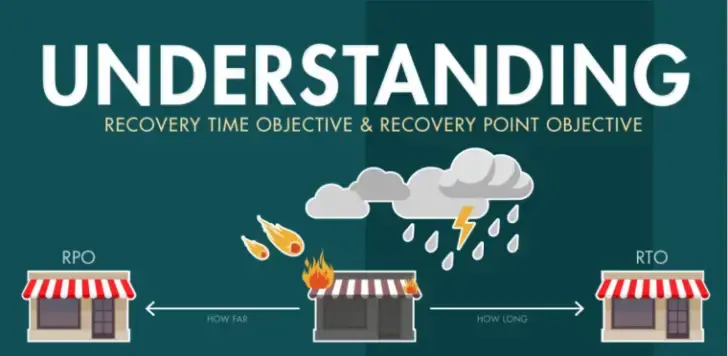In the event of a disaster, such as a cyber attack, system failure, or natural disaster, your organization’s ability to recover data and systems is essential to maintaining business continuity. Recovery Time Objective (RTO) is a critical component of a disaster recovery plan, explain the maximum allow downtime for systems and services.
This article explores the concept of RTO and its important in disaster recovery.
What is Recovery Time Objective (RTO)?
RTO is the maximum tolerable time it takes to recover data and systems after a disruption. The RTO specifies the time within which the organization must have its services and systems up and running, after an incident or disaster, to avoid significant business impact.
It is an essential metric use in creating a disaster recovery plan, and it is closely related to Recovery Point Objective (RPO). While RPO defines the maximum data loss that an organization can bear, RTO determines the maximum downtime that an organization can afford before business operations are significantly affect.
Why is RTO important?
RTO is critical because it sets the recovery time limit for an organization to continue its business operations after a disruption. The duration of downtime determines the extent of financial loss and impacts the company’s reputation. For example, if the downtime exceeds the RTO, an organization may lose customers and revenue, and face legal consequences.
Therefore, a clear understanding of RTO is crucial in establishing an effective disaster recovery plan.
How do you calculate RTO?
The RTO calculation involves analyzing the impact of a disruption on critical business operations and services. This process identifies the maximum downtime that the organization can tolerate before the impact becomes unacceptable. Factors to consider include:
- The type of systems and services affected
- The time required to recover the data and systems
- The resources required to perform the recovery
- The availability of backup infrastructure and data
- The recovery process
- The organization’s management, IT staff, and stake-holders should be involve in determining the RTO. The RTO calculation can be used to the critical systems and services that require immediate restoration in the event of a disruption.
What are the benefits of RTO?
The benefits of RTO include:
- Establishing a clear and achievable recovery time limit
- Identifying critical systems and services that need to be restore first
- Prioritizing resources for recovery efforts
- Communicating recovery time expectations
- Reducing financial losses and reputational damage
(FAQs)
Q. What is the difference between RTO and RPO?
A. RTO is the maximum allow downtime for systems and services after a disruption, while RPO defines the maximum data loss that an organization can tolerate.
Q. How often should RTO be reviewed?
A. RTO should be reviewed regularly, particularly when new services are introduced, systems are updated, or business operations change.
Q. Can the RTO be shorter than the time required to restore systems and services?
A. No, the RTO should be based on the time required to restore systems and services fully. A shorter RTO will be unrealistic and difficult to achieve.
Q. What are the consequences of exceeding the RTO?
A. Exceeding the RTO can result in financial losses, reputational damage, and loss of customers. It can also result in legal consequences for non-compliance with regulations and standards.
Conclusion
RTO is a critical metric that defines the maximum tolerable downtime an organization can withstand after a disruption. It is an essential component of a disaster recovery plan, and its calculation involves identify critical systems and services that require immediate restore. The importance of RTO cannot be overstated as it reduces financial losses and reputation damage, maintains customer confidence, and ensures regulatory compliance.
